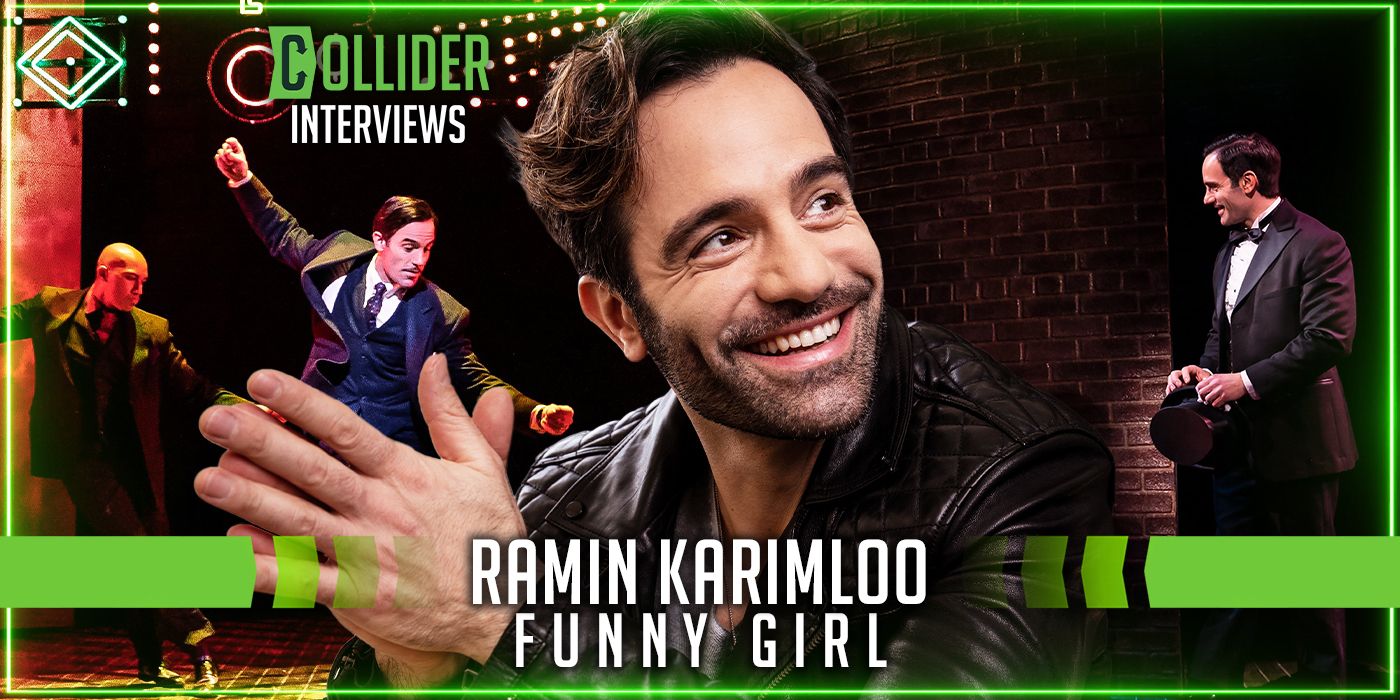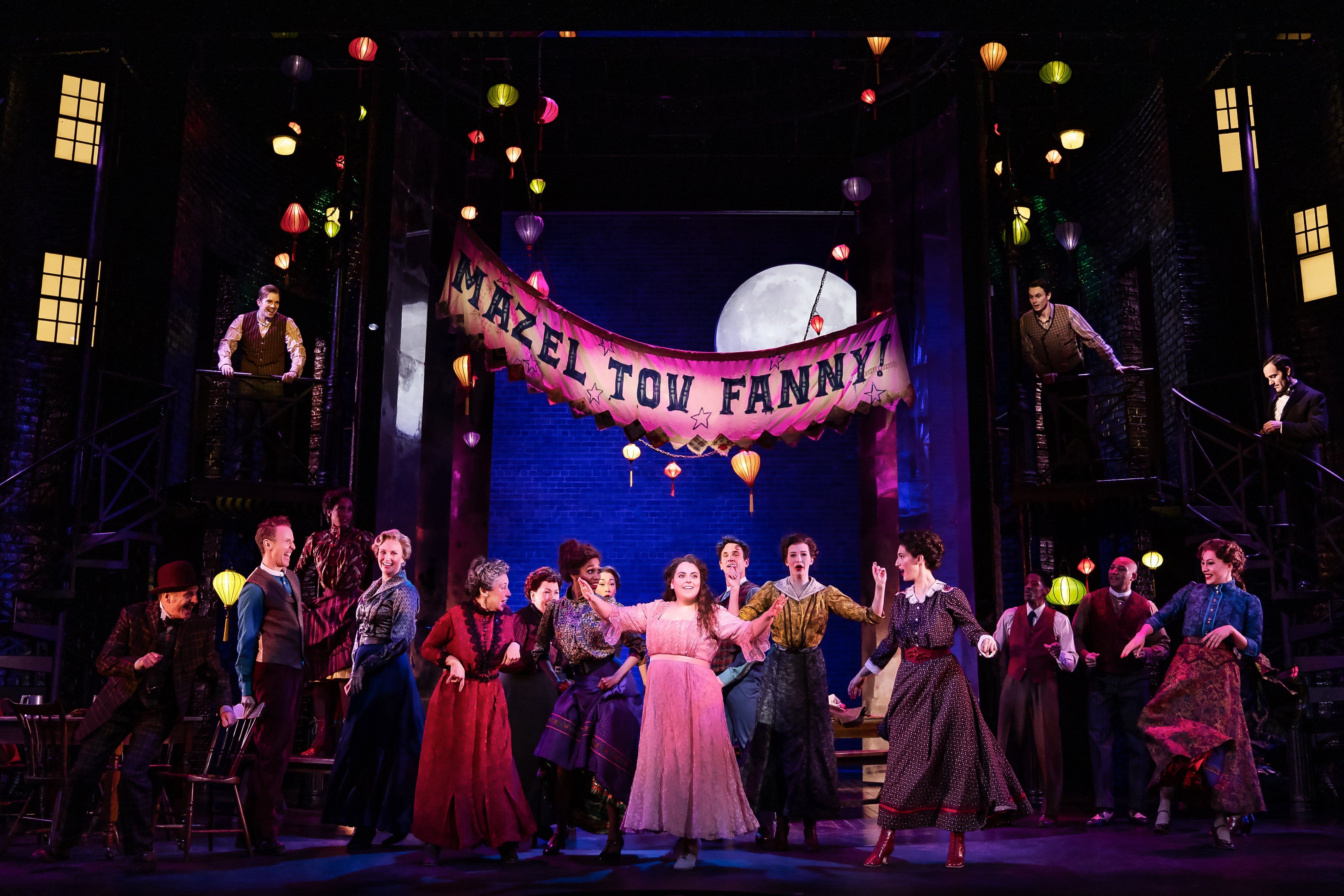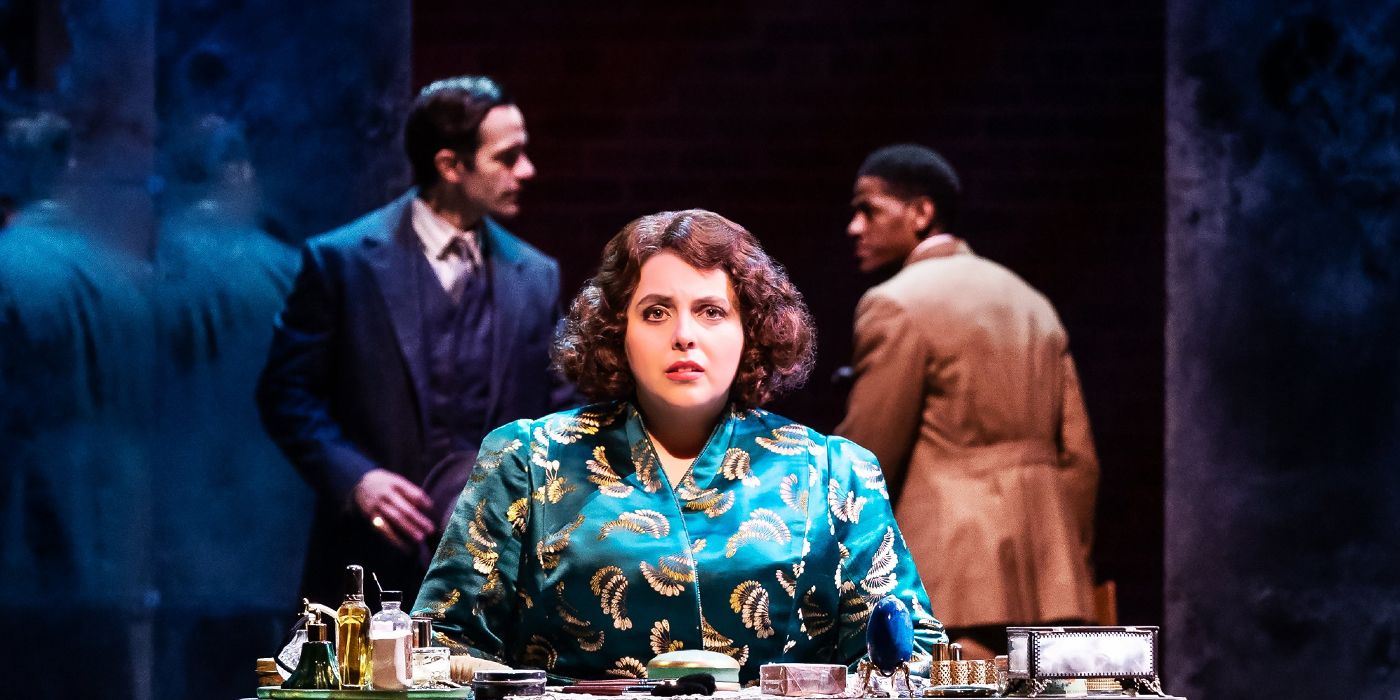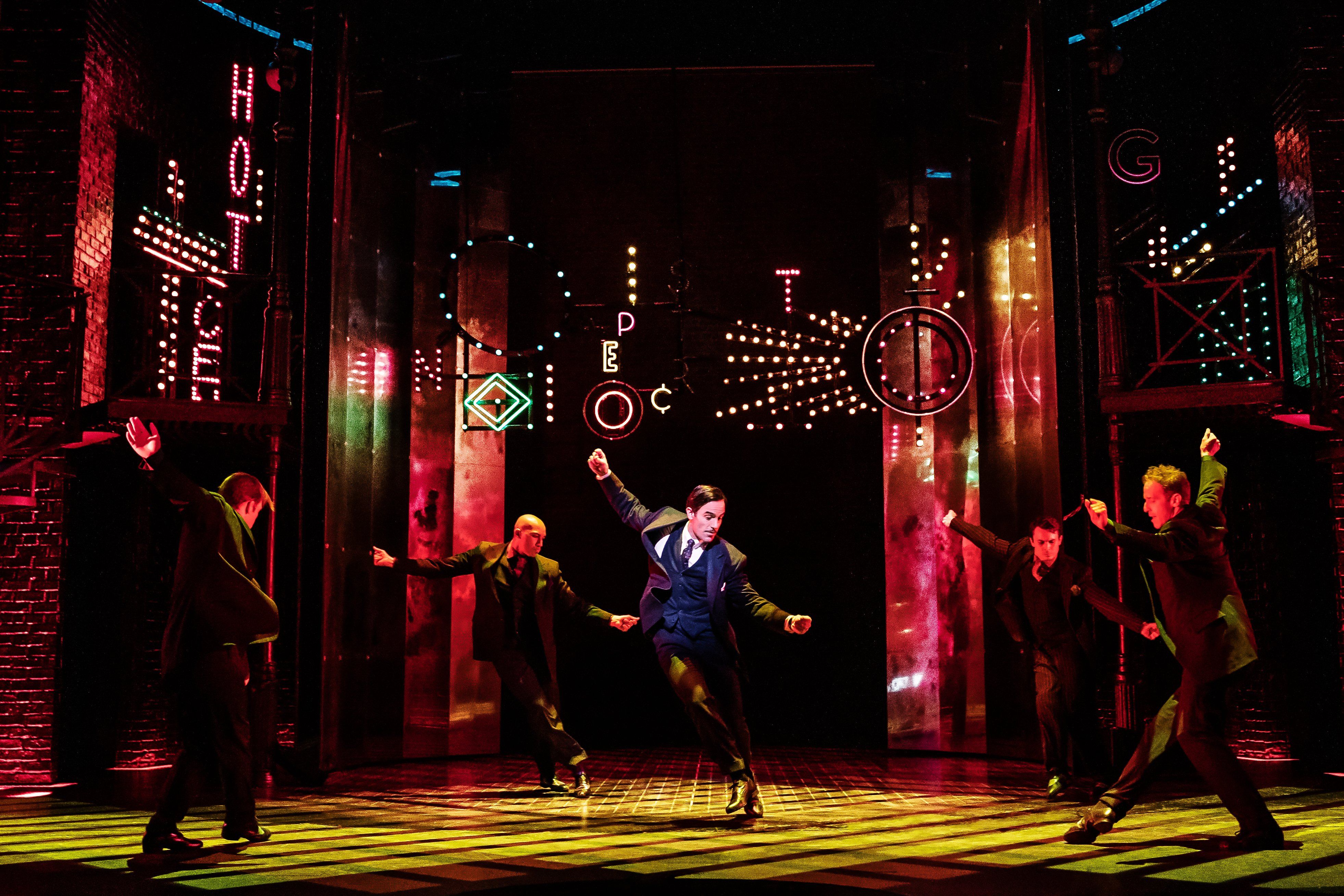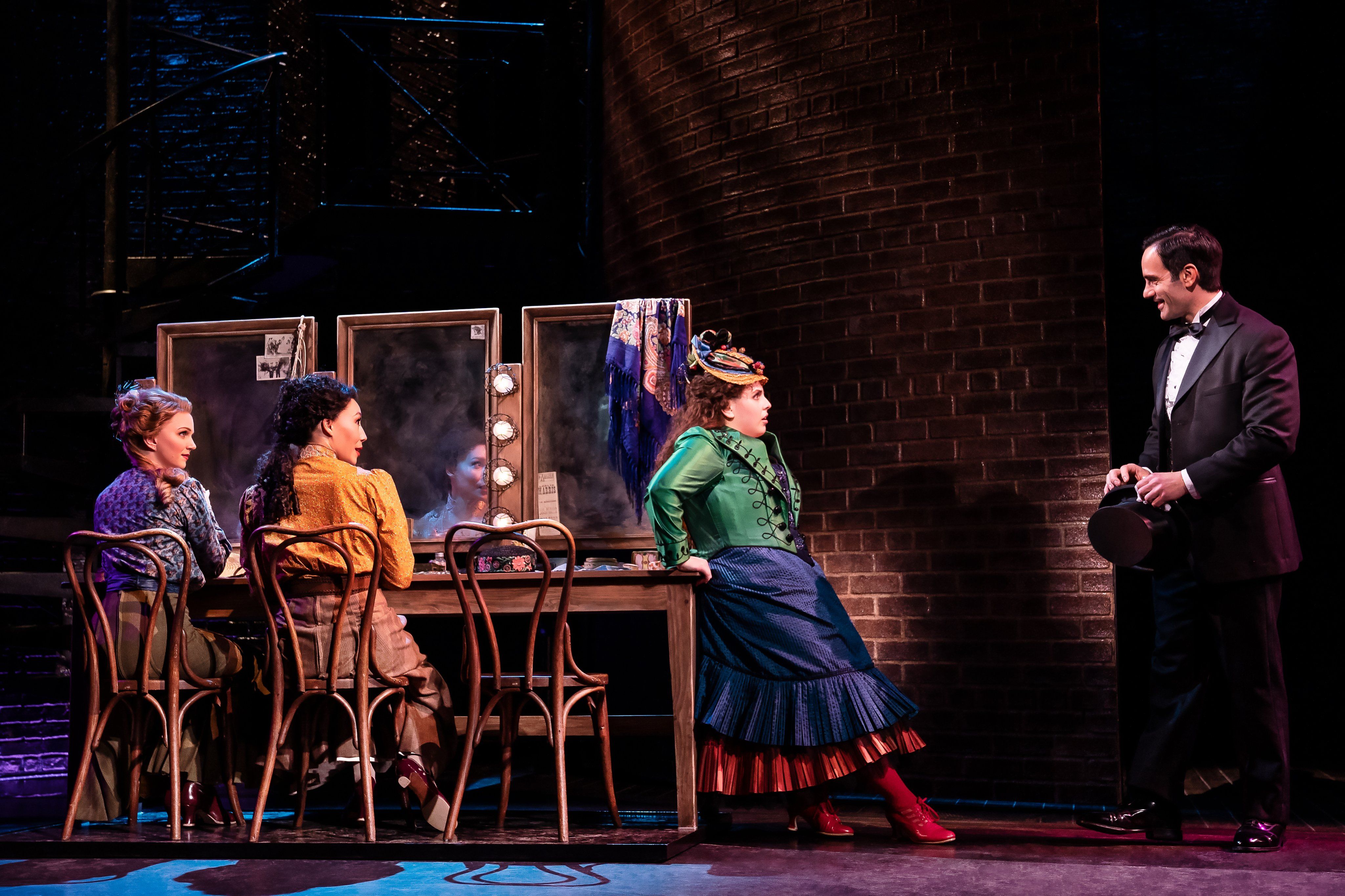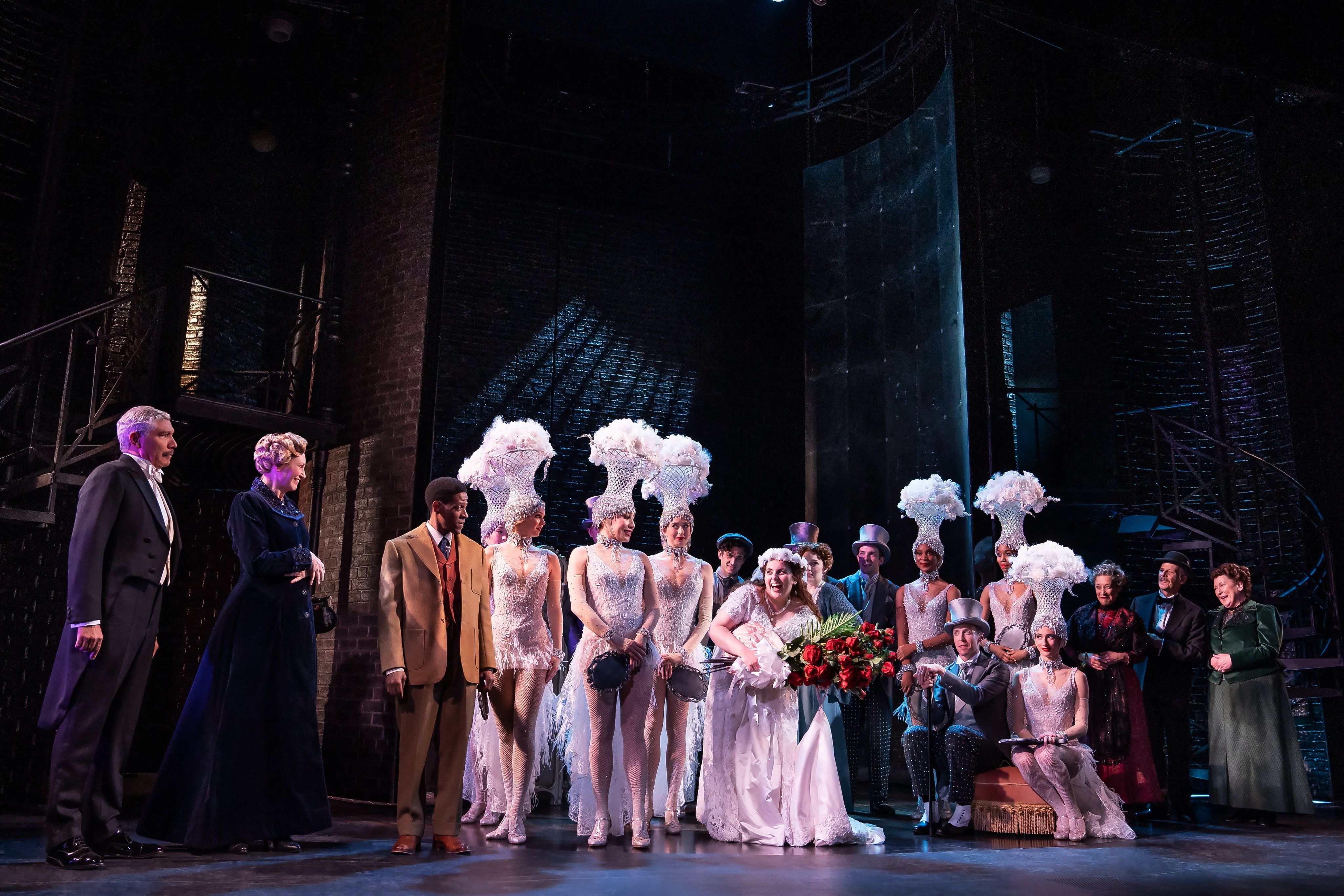Ramin Karimloo is currently starring in the Broadway revival of Funny Girl as Nicky Arnstein, opposite Beanie Feldstein and Jane Lynch at the August Wilson Theater. Karimloo has a long history in the musical theater industry, having performed in productions of Les Miserables and Phantom of the Opera, in addition to appearing in the staged recordings of the shows for their 25th anniversaries, and he is known for originating the role of the Phantom in Andrew Lloyd Webber’s Love Never Dies and bringing life to the new character Gleb Vaganov in the Broadway production of Anastasia. In addition to theater, he recently had a lead role in Britain’s popular medical drama Holby City and can be seen in the upcoming musical film Tomorrow, opposite Samantha Barks, who starred in Tom Hooper’s Les Miserables adaptation.
During this 1-on-1 interview with Collider, Karimloo talked about portraying two characters that Omar Sharif has played, the complexities of Nicky Arnstein as a character, recording Nadiam Naaman’s Rumi: The Musical, and working with Beanie Feldstein and Jane Lynch.
COLLIDER: I saw the show last week and it was fantastic.
RAMIN Did you? Oh, wait, did you come on the first preview?
I came to the second! It was amazing. I thought it was interesting that back in 2019, you were in the concert performance of Dr. Zhivago. So what has it been like getting to be in two productions that are kind of known for Omar Sharif's roles?
KARIMLOO: Well, I think that what I can take from that is a gratitude for being asked to do two great roles, because someone like Omar Sharif gets to play good roles, a man of integrity. So to emulate that, to walk that path. What a great thing. I'm a big fan and what he did with Dr. Zhivago. It was so beautiful. And then what he did as Nicky Arnstein.
It's funny, a lot of people talk about Nicky, and they're like, “he is the kind of guy we hate to love and love to hate. He is a dastardly guy.” But I don't see that in him. Maybe I'm not a good guy. Nicky loved this woman. He did all he could to be something for her. He was quite an honorable man and man of his word. Now, things didn't go his way. He only knew what he knew. Anyhow, to go back to Omar. I just think it's great... I'm just very grateful because he got to play great parts, and now I get a crack at that whip.
What was the process for Funny Girl like? What was the audition like? Was Omar's portrayal one of the reasons you wanted to play this character?
KARIMLOO: Well, funny enough, I accepted this role before I'd seen the film. I didn't grow up [with it]. For someone who's in theater, you're still talking to someone who hasn't seen Wizard of Oz or The Sound of Music.
Oh, my gosh!
KARIMLOO: I have got a long road of things to learn ahead of time, but I'm looking forward to it. And again, with this role, it was an offer that just came out of the blue. I had just sung with Barbra Streisand in London's Hyde Park, which was out of the blue as well. It was so beyond comprehension. There I am, hanging with Barbra Streisand. I'm like, how is this even happening? Why is this happening?
And then two weeks later, at that point, I was shooting a TV show, Holby City. And then this offer came in saying, "They want you to play Nicky Arnstein when the show comes back to Broadway." I was like, "Well, that's funny. I just sang with the Fanny Brice." My friends at Sony called me a day prior to that saying, "Hey, Funny Girl's coming to Broadway. You should look into that for Nicky Arnstein." I was like, "Well, I don't know it, but I'll look into it." And then this offer came in. So I was like, "You know what, someone's telling me, take it, and we'll figure it out after."
Going back to what you were saying about Nicky, he's such a complex character. What is the process that you use to get into his headspace, to rationalize some of the decisions that he makes? Because I, like you, think that he is a good guy, he's just kind of in a tough situation.
KARIMLOO: Correct. And I think he comes from a world that ... And I think Rose Brice in the show says, "It's about that unconditional love, and you love people for who they are with the faults." And again, it wasn't that he had a bad heart, but he was a flawed man because of the circles he also worked in and hung out in and what he knew, but he only ever did it with the best intentions for Fanny.
I think what's amazing about this show. And I guess my connection to Nicky is... Well, we've got to start with Fanny and what she stands for and what she did for a woman of her time, for an artist of her time, creating her own templates, her own molds, trailblazing, paving the way. I think in this day and age as a father, that's all I would ever try and tell my kids, look at what someone like that could do. You don't wait for some ... You don't necessarily have to wait and see what you want. You can create what you want and be that for other people if that helps.
So for Nicky, I try and think of it, obviously, it's a period piece, but we've got modern sensibilities, and we are in 2022. After a pandemic, where for me personally, I learned [that] I accumulate a lot of stuff in my life. What does it really mean? When you whittle it down, I just want authenticity. I want stuff that's real, stuff that's fulfilling, stuff that fuels your soul, makes you a better person. I think ultimately, that's what he wanted without knowing what he found without looking for it. Unfortunately, it was probably a little too much for him because he didn't know how to handle that. That's what he found in Fannie. Fannie was something that he never experienced before, never felt that joy, that laughter, that connection, that authenticity. So that's an easy conduit between me and the character because I think I've always wanted that. I think as humans, we wanted that, but more now than ever.
I think what's interesting about Nicky is he tells her upfront who he is as a person. And then she kind of has these plans for how she can make him into more of what she needs. It's a really good back and forth between them.
KARIMLOO: Well, that's what I like about him. He didn't put on a facade for her. He didn't be something he wasn't. Like you say, he was straight up.
What has it been like being back in New York now after (and still kind of in the middle of) a pandemic and getting to be on stage? I feel like most of the people that were around me when I was seeing the previews, this was their first show back on Broadway. And to be part of that experience for a lot of people, what has it been like?
KARIMLOO: Well, I think you can feel that energy that night. It made me realize how much I missed that immediate relationship with effectively… What? I don't know what our theater holds. 1,400 strangers? 1,000?
Something like that.
KARIMLOO: But you get this immediate relationship right away. Especially now, I feel like more than ever, we have everyone's attention because as you say, you can't take it for granted because it's been so rare. It's a rarity to finally go to the theater and see it that packed and see that excitement. It's been great for that.
It's been great to have that relationship again with a live audience, to effectively dance with the words you're given in the book and the scenes, how it alters every night based on the ebb and flow of the audiences' laughter, their energy. And it's nice navigating that every night. You're like, "Oh, this line can land like this now." Or you wait longer to say this line. And depending on what Beanie decides to do on this night, which is such an exciting scene partner because she's ... It's like the energy's live every night. It's not cookie-cutter.
I don't know if I wanted to do this anymore. I didn't know if I wanted to be in New York. I certainly didn't want to be away from my boys. But like Nicky Arnstein. I was like, "Man, I’ve got to provide." We’ve got to pay the bills... It's that old school “for better or for worse” mentality of trying to figure out ... Part of my identity is not being an actor, it's being a husband and a father.
So there was a bit of that, like, “Whew, it's been a while since I've been in a long run, well hopefully a long run, eight shows a week.” So I was a bit nervous about that. I was nervous about the role because it was different, but that's good because feeling uncomfortable is where you grow. Right?
It is. And you get to dance in this show.
KARIMLOO: Yeah. Well, you saw it.
Was it fun getting to choreograph that? I feel like you haven't done a lot of dancing roles in the past.
KARIMLOO: Never.
So getting to do the "Temporary Arrangement" song, was it fun?
KARIMLOO: Oh, amazing. And I didn't know what it was going to be like. We didn't know how far they could push me, or how far I wanted to be pushed. But I spoke with Ellenore [Scott] our choreographer on the phone while I was still in England. I said, "Listen, if there's moments in the show where you feel Nicky, and it serves a story, treat me like a dancer and let's see how far we can get." I actually said to her, "And then go 20% beyond that." Because I am athletic, I am mobile, I am coordinated.
But it's like a different thing, get my brain and body to start doing those things. So it'll take me longer than the boys around me because that's their wheelhouse, but we have time. I'm willing to put in the work. As long as it serves a story, and it makes sense, then let's go for it and let's see what happens. What's the worst that can happen. We either cut it back, I go stand on the side and snap my fingers. You know? But hopefully, as you saw it…
It was good! It was very good.
KARIMLOO: Mandy's not seen it yet. She's the final judge on that.
She'll either give you a 10 or a 7 or somewhere in between.
KARIMLOO: I'm waiting for that!
There are other changes with the revival. I feel like since most people have not seen the original production on Broadway sixty years ago, everyone's very familiar with the movie. And Omar doesn't really sing that much. And I wanted to know if you thought that it helps change Nicky or make him more relatable that he does get to emote more through song in the stage production.
KARIMLOO: Well, I don't know. Maybe you can help me answer that. I took this part because he didn't sing. I was like, "This is awesome." I don't necessarily get a kick out of singing like I used to."
But you're so good at it!
KARIMLOO: Oh, I appreciate that. I'm sure there's a lot of people who argue that as well, but that's neither here nor there. I don't know. My relationship with singing has changed, and I don't know what I'm going through, but we'll figure it out. And if I keep going towards non-singing then that's what happens. And if maybe I'll take another turn one day and I'll be like, "Oh, I found something." Because I found it with Rumi. Singing that music was ... Oh, my days, that change, that was incredible.
That being said, the songs they have added for Nicky, which aren't necessarily my wheelhouse, have that sort of jazzy swing, old-timey sound, which I'm really enjoying. And I like it because it's about storytelling, and I know a temporary arrangement. We picked some nice notes. That was my suggestion.
Because I remember in rehearsals I was like, “We need a bigger opening and bigger ending.” Then I was like, "Oh, I can't help it. All right. Why don't we try this note here?' And they're like, "Oh, that's cool. Let's go with this." So it was a very collaborative moment, but I just couldn't help myself. And I was like, "You could have gone for a lower note." But I think it serves the emotion. So I've talked myself so far away from your question. What was the question?
If it felt like having Nicky sing more helps make him more relatable because he's able to emote through song.
KARIMLOO: Well, as an audience member, did you feel more connected when Nicky sang?
Yes. Because it's those moments where you get to see that, the connection between him and Fannie when they're getting to kind of have their emotions put to song rather than just words.
KARIMLOO: I think obviously with this score and the lyrics and how it evolves into, “I want to be seen with you.”It's so joyous and it's fun. So, and as you say, sometimes words aren't enough. So you put that melody to it. And that physical reaction that happens within a person when they sing, it's just another extension of their emotions. So the fact that it landed with you then, great. I'm glad it did.
You mentioned Rumi, which I have a question about. It made waves with its authenticity and representation. I know I have friends who are Iranian and MENA and SWANA, and they were overjoyed to learn about this musical. I wondered what it was like for you to get to be part of something and to see the impact that it had on communities that aren't always seeing themselves in musicals.
KARIMLOO: It's funny you say that because I'm struggling with this sort of talk. I've been Iranian all my life and only now do people want to talk about it, which I don't know why I get my back up about it. Because I understand it's great when I hear people feel represented and as they should. So I want to be careful with how I approach it, but I want to be authentic about it. Because I remember in rehearsals, the cast was phenomenal.
And again, I remember being in this room full of Middle Eastern, and North African, and Asian cast. And there was this different emotion and feeling I was having, but I couldn't quite explain it. And then I remember when one of the Iranian cast members was very complimentary to me is like, "You broke the glass ceiling for us Iranians." And I found that uncomfortable because I was like, "But why, why? Who told you, you couldn't do it?" I saw an Irish guy play Phantom, and I was like, "I'm going to do that."
So I'm still trying to figure this out for myself as to why I have a slight allergic reaction to it. But at the same time, I 100%, agree it's important. And it's great that people, especially if there's another Middle Eastern or any kid, to be honest, it doesn't have to be [a] Middle Eastern [kid], that finds what I do inspiring. That's amazing. I hope I'm a good role model, but I don't want to be dishonest with waving the flag without fully understanding it. But at the same time, when we did Rumi, it's the only time I get... My hair is on end thinking about it. It's the only time I broke down. When they started playing the drum, the Middle Eastern sounds, and I don't know why I had tears in my eyes. And I feel myself getting choked up thinking about it now.
It's something that I'm still exploring to try to figure out for myself. So on one hand, I'm like, "Who told you that you couldn't do it?" But at the same time, I'm getting emotional. So of course, it's important. So it's still a work in progress for me. I saw the play called English, by an Iranian playwright, Iranian cast. There was a moment of speech. My friend who's in it, Pooya [Mohseni], did the speech. And thank God I was wearing a mask, because I couldn't control my emotion, my tears, but I couldn't understand it either. So it is just a hammer home that I'm still trying to figure out, but I'm super glad that people are feeling great to see, I guess their folks on stage.
And at the same time, yeah, we should see Iranian and Middle Eastern music because the music is so rich and full of culture. Amazing what Nadim [Naaman] and Dana [Al Fardan] did. I think there's going to be a long road ahead of it in a good way. It's going to have a long life, I should say. The music is just... That's one of my favorite albums and the fact that—and it is the only time I'll ever say this—when it didn't get nominated for a Grammy, I'm like, "What the fuck?" Because I remember when I heard the album, when Nadim sent it to me, I was blown away by the production as a musician if I can call myself that. But I was like, “Nadim, the production on this is... The listening experience from beginning to end is phenomenal.” I said, "The production team, your music team, the supervisor, the orchestrations, this has got to be pushed for a Grammy. Are you going to submit it?" He's like, "Yeah, we are." I'm like, "100%. You got to. It blew me away.“
I had my fingers crossed for it. I was so hopeful.
KARIMLOO: But you know what? Who cares? As long as people are listening to it.
It had the impact that it was looking for. And then tapping into what you said about being a role model. You have been in this industry for about 20 years and Funny Girl is a show about show business and about Fannie kind of making a name for herself. When did you feel like, "This is it. I've made it."
KARIMLOO: I never feel that. I'm very grateful that my career seems to go from strength to strength, and I'm getting more diverse roles. And I do different things from TV to film, to now a role like this. The bigger they get, the more vulnerable I feel, [and] the further away from feeling like I've made it. But I don't need to feel like I made it. I don't need that validation. I don't need that. I don't want to say that, because you want security, but I don't need that security at the same time because I want to constantly work. I want to constantly be trying to be better than yesterday, to be more understanding of myself, understanding of my craft. And I want to keep adding to it. The more you add to it means there's going to be more things you don't understand that you're striving for. I always want to be a work in progress.
What has it been like working with Beanie and Jane? They both feel like such incredible creatives. What has it been like getting to interact with that kind of energy on stage?
KARIMLOO: Well, they're probably two of the main reasons that it was a no-brainer to take this job because I wanted to see what the process was like in the rehearsal room, how they work. They're both such inspired artists. And I've been a long-standing fan of Jane from the work she's done, especially in the comedy world. And then Beanie over the last three years, just even, what she's accomplished, what she's done. I was like, "Oh." I was so intrigued to see how they work in the room. And with Beanie, it's been such a seamless relationship from day one.
I felt like I'd known her for years. I felt this immediate trust with her and that we check in as much as we can. And I'm always trying to check in with her, make sure she's good, and no drama. It's just been incredibly fun. She makes me laugh. I find myself about what we did during the day. I'm constantly laughing at myself around my flat, when I think about what Beanie did, or on this choice.
Like I said, she's very “live moment to moment,” which is my favorite way. So we never fully set anything because we'll see what tonight's audience and the energy we ride with. So they're her little nuanced choices every night, It makes me laugh. It makes me even laugh on stage because ... And I think, "Oh, with Nicky, this is great." Especially in act one, if she makes him laugh, that's where he falls in love with you. So I'm not going to stifle those laughs because it's pure joy. And Jane is just a phenomenal human being.
I don't like the word expectation because she's beyond that. But you picture how someone might be out of character. All I know her from is the films. It wasn't even Glee. I never saw Glee. It was all the other stuff she's done. She's that and some. She's the kind of artist where ... And I said to her last night, actually after the show. I'm like, "At some point, I want to come to you and pick your brain, what I'm doing, get your director's eye because I want to know with your experience. I'd love to jam on that and just see what do you think of this moment?"
I love that. And then this is my last question. You and Samantha Barks worked on the Tomorrow movie. I think it was last year that it was filming. What can fans expect from that?
KARIMLOO: Your guess might be as good as mine at this point. Because with filmmaking, it's always about, you shoot it [and you think] oh this is going to be great. But then you think let's see how it gets edited. And now it's in the edit gods, it's in their hands. It's going to be, from what we shot, the music is phenomenal. There's going to be a lot of fun in it. I think I might have even danced a little bit in that. But in film, it's different because you can cut and paste, and okay, let's take that moment again.
The story was like the relationship, it wasn't just so seamless and easy. It was like a complicated, real-life story to it, that people may find accessible. But again, I want to be authentic. Let's see the edit. But we had the best time shooting it. Nick was a great director, and we had a great camera team, our DOP, the sound. I really fell in love with filmmaking. And I'd love to go more towards film, if I had a choice, if I had the option, if I had the ability and the chance to do that. Because those six weeks, you become such a tight unit. And what happens on and off camera, it's great memories, and it's so much fun.
Funny Girl opens at the August Wilson Theater on April 24th.

